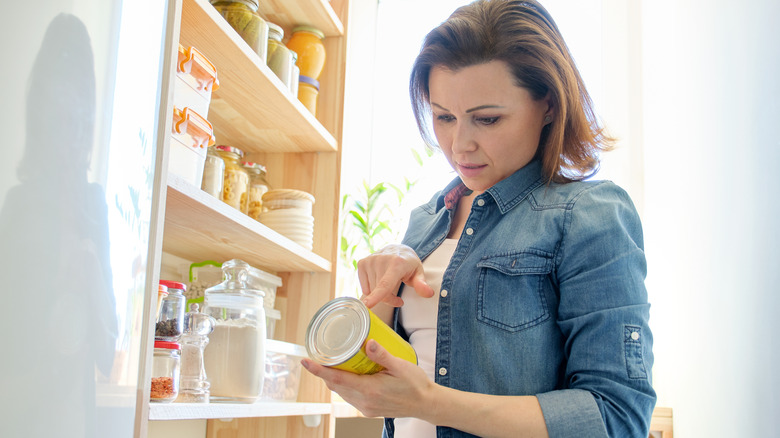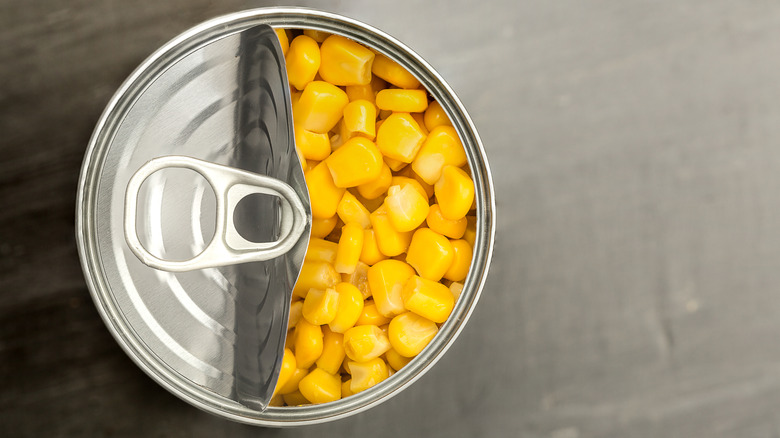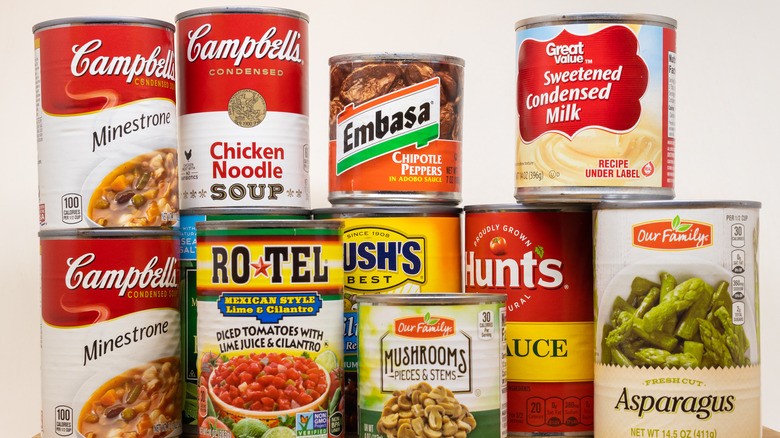The USDA Says To Toss Canned Foods That Look Like This
Canned food comes in handy in a pinch, like after you return from vacation and find nothing in the fridge. A well-stocked pantry full of canned goods such as tuna, fruits, and vegetables can be helpful during the winter months when it's difficult to get to the store. Yet sometimes those canned goods can gather dust in the back of your pantry if they aren't eaten. That's why the U.S. Department of Agriculture (USDA) suggests checking your canned goods every few weeks and consuming (or donating) those canned foods that have been in your pantry for a while.
The USDA also suggests looking at the condition of your canned foods. While you might see a few dings in cans from shipping, you'll want to look out for deeper dents that are large enough to fit your finger and have sharp points. Dents like these could damage the protective seam and allow bacteria to enter your food.
Other warning signs to toss canned food
The USDA says that the Clostridium botulinum bacteria can produce a deadly toxin in canned foods. Green beans, corn, beets, and peas might have some of the spores from the bacteria in the soil, so improperly canning these vegetables puts them at higher risk of being contaminated. Canned foods will show signs of this bacteria if they are heavily dented, but you should also throw out cans that are leaking or bulging. If you open the can and the food smells foul, it should be tossed. The liquid surrounding canned vegetables should be clear, so if it's milky, the vegetables and can should be thrown out. And avoid tasting the food — it's not worth it.
Rather than just tossing the dented or spoiled canned goods into your kitchen trash, the USDA recommends double-bagging the cans and taking them to your outside trash container or dumpster. This will prevent curious children or hungry dogs from getting sick after poking around your kitchen trash. Also, don't try to recycle the cans.
Properly storing canned food
Canned food can be stored in your pantry or cabinets for a long time, but not forever. Canned food can rust if it's been sitting around for a while, so get rid of any canned food that has a significant amount of rust that you can't wipe off. Cans will react with high-acid foods like tomatoes and degrade the quality and taste of the food. The USDA says that storing canned foods at temperatures over 100 degrees will also run the risk of spoiling the food. In other words, avoid storing canned foods in an outdoor shed, garage, basement, or area that isn't climate-controlled. You'll also want to avoid storing cans near your stove or oven.
After you've opened a can of food, you can store the can in the refrigerator. However, the food might taste better if you transfer any leftover food into a clean container and store it in the refrigerator.



